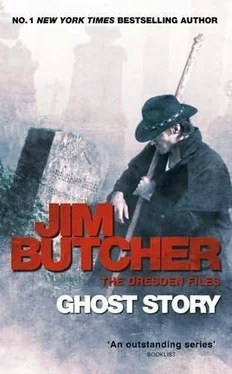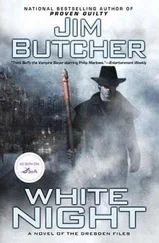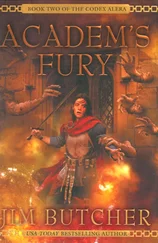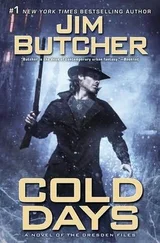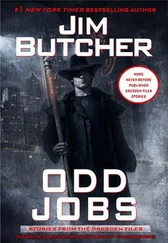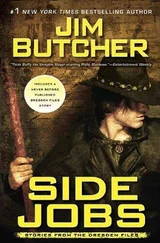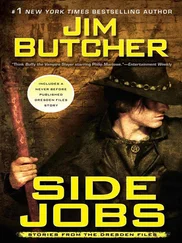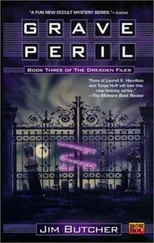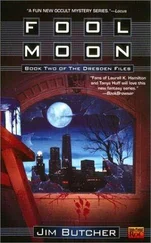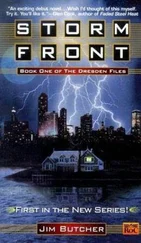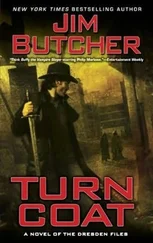“That’s your professional opinion, is it?”
“Yes.”
She stared at me for a minute, then said, “Abby was standing on my patio last night when they came by. She took a round in the belly during that attack. She didn’t get down fast enough. They don’t know if she’s going to live or not.”
I thought of the plump, cheerful little woman, and swallowed. “I . . . I didn’t know, Murph. I’m sorry.”
She continued speaking as if I hadn’t said anything. “There was a retiree living in the house behind mine. He used to give me tomatoes he grew in his garden every summer. He wasn’t as lucky as Abby. The bullet hit him in the neck while he was sleeping in bed. He had enough time to wake up, terrified, and knock the handset of his phone out of its cradle before he bled out.”
Hell’s bells. That put a different spin on things. I mean, I had been hoping to go for a no-harm, no-foul argument with Murphy. But if blood had been spilled and lives lost . . . Well. I knew Murphy. Whether or not she was a cop anymore, she wasn’t going to back away.
“Where are they?” she asked.
“This is not a time to kick down doors,” I told her. “Please hear me out.”
Her hand tightened into a fist, but she visibly took control of her anger, took a deep breath, and then nodded. “Go ahead.”
I told her about Fitz and his gang. I told her about Aristedes.
“I notice, Harry,” she said, “that you didn’t tell me where they are.”
“Yeah,” I said. “I, uh. I sorta told the kid I would help him. That you would help him.”
Murphy narrowed her eyes. “You did what?”
“They’re kids , Murph,” I said. “In over their heads. They need help.”
“They’ve killed at least one person, maybe more,” Murphy said. “There are still laws in this town, Dresden.”
“Send the cops in and it’ll get ugly. I’m not sure how much juice their boss has, but even if he can’t shoot, he’d be a nightmare for the police—even SI.”
Murphy frowned. “How sure are you about that?”
“Guys like him use fear and violence as daily tools. He won’t think twice about hurting a cop.”
Murphy nodded. “Then I’ll deal with him.”
“Murph, I know you can handle yourself, but—”
“Dresden, I’ve dealt with two men since you . . . since the shooting, who were skilled enough for Carlos to call them the next-best thing to full Council-quality warlocks. I’ve handled several lesser talents, too. The Fomor like to use them as officers and commanders. I know what I’m doing.”
“You’ve killed them,” I said quietly. “That’s what you mean, isn’t it?”
She looked away. It was a moment before she answered. “With someone that powerful . . . there’s not really a choice. If you try to take them alive, they have plenty of time to kill you.”
I winced in sympathy for her. She might not be a cop anymore, but it was where her heart lay—with the law. She believed in it, truly believed that the law was meant to serve and protect the people of Chicago. When she was a cop, it had always been her job to make sure that those laws worked toward that purpose, in whatever way she could manage.
She loved serving her city under the rule of law, and that meant judges and juries got to do their job before the executioner stepped in. If Murphy had dispensed with that belief, regardless of how practical and necessary it had been, regardless if doing so had saved lives . . .
Butters had said that she was under stress. I now knew the nature of that stress: guilt. It would be ripping away steadily at her insides, at her conscience, scraping them both raw.
“They were all killers,” she said, though I don’t think she was talking to me. “Killers and kidnappers. And the law couldn’t touch them. Someone had to do something.”
“Yeah,” I said. “Someone always does.”
“The point is,” she continued, “that the way you deal with this kind of problem is to hit it with absolutely everything you’ve got, and to do it immediately. Before those spell-casting yahoos have enough time to fort up, bend people’s minds into defending them, or to start coming after you or someone you care about.” She looked up at me. “I need the address.”
“You don’t,” I said. “I’ll bring the kids to you. Once you get them away from Aristedes, he’s out of help and vulnerable. Then you can help Fitz and company.”
“Fitz and company,” she said in a flat tone, “are murderers.”
“But—”
“No, Harry. Don’t give me any rap about how they didn’t mean it. They opened fire with deadly weapons in a residential neighborhood. In the eyes of the law and anyone the least bit reasonable, It was an accident is unconvincing. They knew what could happen. Their intentions are irrelevant.”
“I know,” I said. “But these aren’t bad kids. They’re just scared. It drove them to a bad choice.”
“You’ve just described most of the gang members in this town, Harry. They don’t join the gang because they’re bad kids. They do it because they’re frightened. They want to feel like they belong somewhere. Safe.” She shook her head. “It doesn’t matter if they started out as good kids. Life changes them. Makes them something they weren’t.”
“What do you want to do?”
“Take a team to their hideout. Deal with the sorcerer. We’ll make every effort to avoid harming the others.”
“You’re going to open fire with deadly weapons on their home. Maybe you don’t want to hurt the kids, but you know what could happen. If you wind up with bodies on the floor, your intentions would be irrelevant. Is that what you’re telling me?”
Her eyes flashed with sudden anger. “You haven’t been here the past six months. You don’t know what it’s been like. You—” She pressed her lips together. Then she looked at me and stared, clearly waiting.
I said, very quietly, “No.”
She shook her head several times. Then she said, “The real Dresden wouldn’t hesitate.”
“The real Dresden would never have gotten a chance to see them. To talk to them. He’d just skip to the fight.”
She flipped her notepad closed with a snap of her wrist and stood. “Then we’ve covered what needs doing. There’s nothing more to discuss.”
Murphy got up and left the room without a word, her steps smooth and purposeful.
Butters rose and collected Bob and the little spirit radio. “I, uh . . . I usually follow along after her when she’s setting up something. Take care of the details. Excuse me.”
“Sure,” I said quietly. “Thanks for your help, Butters.”
“Anytime,” he said.
“You, too, Bob,” I said.
“De nada,” the skull replied.
Butters hurried out.
I was left standing in the conference room alone.
Istood there for several minutes, doing nothing. Not even breathing.
Doing nothing is difficult. Once you aren’t busy, your head starts chewing things over. Dark, bleak thoughts appear. You start to think about what your life means. If you’re a ghost, you start to think about what your death means.
Murphy was being slowly devoured from within by a guilty conscience. I had known her a long time. I knew how she thought. I knew what she held dear. I knew what it looked like when she was in pain. I had no doubt that I made the right call on that one.
But I also knew that she was a woman who wouldn’t kill another human, even if he were over-the-hill-and-around-the-bend crazy, unless it was absolutely necessary. No killing is easy for anyone of conscience—but Murphy had been facing that demon for a long time. Granted, she’d been hurt by my death (and let me tell you how furiously frustrated it made me that I was powerless to have changed that). But why would her conscience start catching up to her now? Why develop a sudden case of the damsels when I’d asked her to get more information from her exhusband? Brick walls didn’t stop the woman when she had a mind to walk somewhere.
Читать дальше
